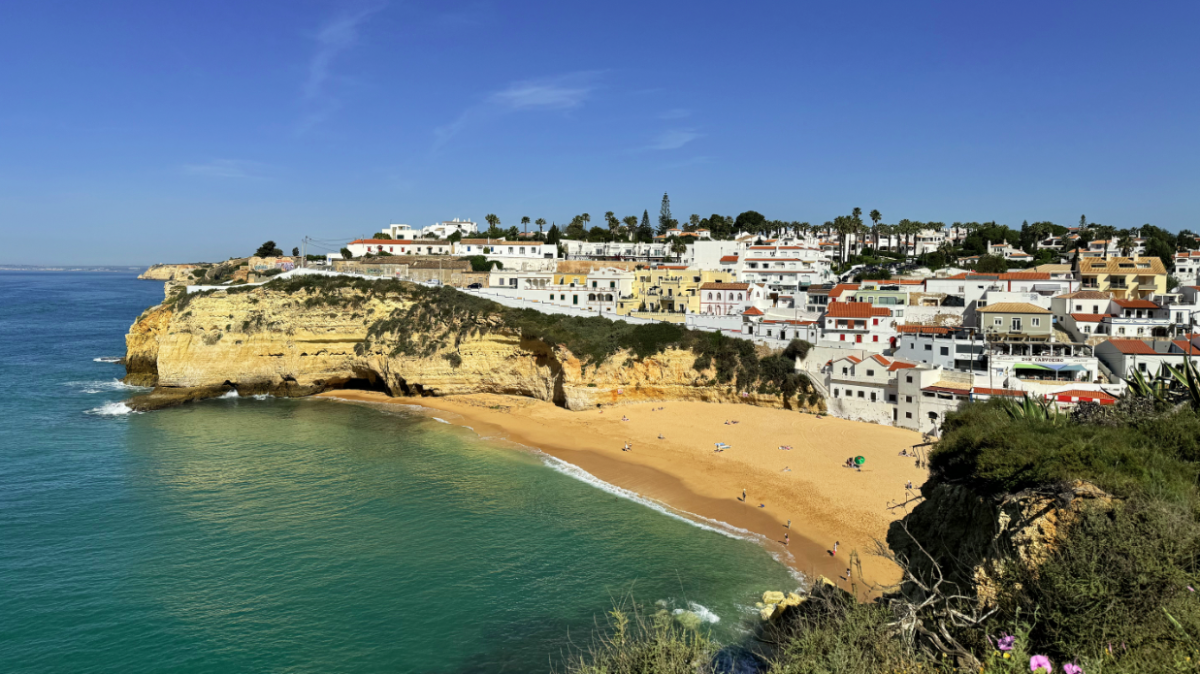We have no doubt whatsoever that the trend is for conditions to deteriorate” the Environment Secretary said during a visit this week to parched farmlands in the Alentejo.
Quoting the Portuguese Met Office, Carlos Martins said that the forecast is that there will “be very little rainfall.”
He explained that the deteriorating drought has seen the Government announce a series of measures, and said others would be introduced should the extended forecasts prove correct.
Farmers have meanwhile asked that additional measures be drawn up to get their animals to water after large swathes of southern and central Portugal have been increasingly crippled by drought.
This has led authorities to also implement water restrictions in the Alentejo region, which accounts for one third of mainland Portugal.
As of last Wednesday, residents in the Alentejo have been told to reduce their garden-watering habits to a minimum, turn off decorative fountains, and are banned from filling swimming pools for the foreseeable future. This is all in a last-ditch attempt to curb the effects of drought in what has been one of the worst-hit parts of Portugal.
According to meteorological experts, Portugal has been in a state of severe drought since the end of June, when the country’s dams were at the lowest levels in 30 years and almost 80 percent of mainland Portugal faced severe or extreme drought.
At present, 98 percent of the country is said to be in a situation of meteorological drought.
A bill drawn up by the government and published in the government gazette this week stated “it is already clear, in agricultural activities that support animal feed, forage crops and pasture, that there are significant drops in productivity, so that in many situations it is expected that existing reserves will be consumed in the summer.”
Minister of Agriculture, Capoulas Santos, also noted grain losses and recalled that a lack of irrigation water has led to a reduction of areas sown with rice, corn for grain, tomato for industry, melon and potatoes.
The Government has pledged to take steps that will allow farmers to be compensated for losses caused by the drought.
In the meantime, preventative measures, part of a drought prevention plan that aims to reduce urban consumption of water, have been introduced in the Alentejo and could eventually be extended to the rest of the country.
Watering gardens and vegetable plots is restricted to certain times, and, in the most critical areas, filling swimming pools, washing cars, and using decorative fountains are completely banned.
The measures were expected to be enforced in Alcácer do Sal, Aljustrel, Alvito, Ferreira do Alentejo, Grândola, Santiago do Cacém, Sines, Viana do Castelo, Almodôvar, Castro Verde, Redondo, Alandroal, Arraiolos, Arronches and Borba.
In a press conference, Environment Minister João Matos Fernandes said other measures, including restricting the use of dams such as Monte da Rocha and Vigia, and limiting energy production, are also on the table.
Furthermore, extracting water from underground aquifers will now require authorisation, based on how much water is needed.
In Odemira, Arraiolos, Avis, Borba, Alandroal and Mértola, boreholes were being dug to bolster water resources for human consumption.
The Environment Ministry was also due to ensure collective solutions to provide water for animals, and stop them from drinking directly from the edge of lakes and dams.
This comes after the Portuguese confederation of farmers expressed concern this week at the lack of food and water for animals because of drought that has already caused the total loss of some crops.
Farmers said that in some cases, losses have been complete.
The head of the confederation said special authorisation should be created so farmers can drive their animals to the closest dams to drink as “emergency situations require emergency measures”.
He said there had been a lack of pasture for months as it had dried out three months earlier than usual and farmers gave their animals their crops instead of harvesting them, losing these crops completely.
The managers of the Alqueva dam said on Monday that they would facilitate farmers’ access to the water at the project’s infrastructures because of the drought affecting the Alentejo.
Drought to "last months"
in News · 27 Jul 2017, 12:55 · 1 Comments










Earlier in the year it was how how wonderful it is to generate electricity by renewables in this case hydro electric, then get worried that the same dams that produce the hydro electricity are now short of water!
By Nigel from Lisbon on 28 Jul 2017, 10:36